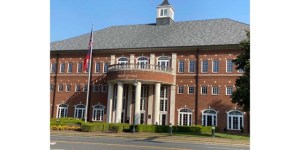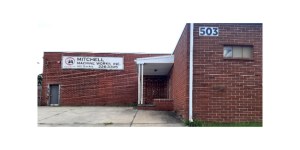Whitfield tax talks go to arbitration
Published 8:59 am Friday, September 7, 2012
The first phase of talks on how to divide Whitfield County’s Local Option Sales Tax (LOST) ended without an agreement between the county Board of Commissioners and the Dalton City Council. So the two sides will bring in an arbitrator to help them try to hammer out a deal.
Trending
“We have our two attorneys talking about who they think would be an agreeable third-party arbitrator,” said commission Chairman Mike Babb. “We’ll get an answer pretty soon. We need to have something wrapped up by November or else we’ll have to go in front of a judge.”
Under state law, since the two sides didn’t reach an agreement during the first phase of the negotiations, they now will go through 60 days of non-binding arbitration.
If the two governments still can’t reach an agreement, the matter will go to a Superior Court judge from outside the district who will decide the matter, similar to baseball arbitration, by picking one side’s offer.
“This is just the next step mandated by the law. I don’t regard us going to arbitration as a big deal or some sort of failure,” Babb said. “I spoke to the mayor at a meeting we were at the other day and reminded him that 10 years ago we started off with a facilitator or arbitrator guiding us through this process. It was very helpful.”
State law requires that cities and counties renegotiate their LOST agreements every 10 years after the results of the latest census are in.
Babb noted that other counties, such as Walker, Clayton and Chatham, are going to arbitration with their cities over the tax split.
Trending
“A lot of the places that have already signed off on these things like Rome (and Floyd County) have a much different agreement than what Whitfield and Dalton have,” Babb said.
The two sides have reached tentative agreements on a number of issues, such as merging the city and county recreation departments and the county ceding its half ownership of the Northwest Georgia Trade and Convention Center to the city.
But they remain far apart on the actual split of LOST revenue. Dalton officials want 45 percent with the county getting 50.967 percent and the rest split among the three smaller cities. Commissioners have offered Dalton 30 percent, with the county keeping 67 percent and the rest split among Cohutta, Tunnel Hill and Varnell.
The LOST currently brings in about $17.2 million a year, and under the current LOST agreement negotiated 10 years ago the county gets 83.24 percent, Dalton gets 14.93 percent, Cohutta gets 0.38 percent, Tunnel Hill gets 0.65 percent and Varnell gets 0.8 percent.






